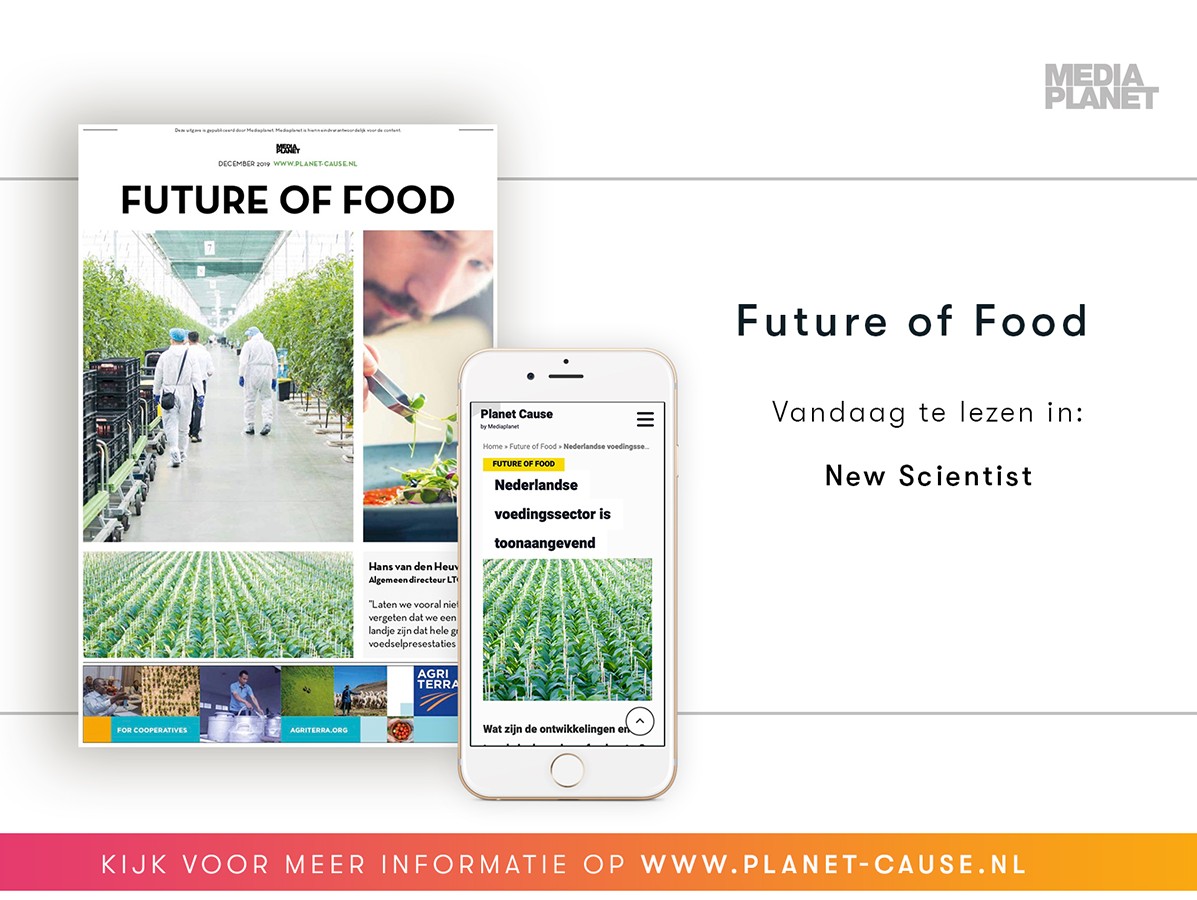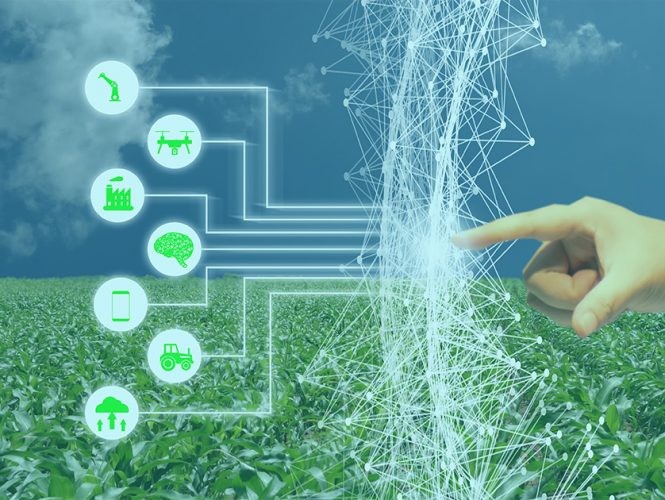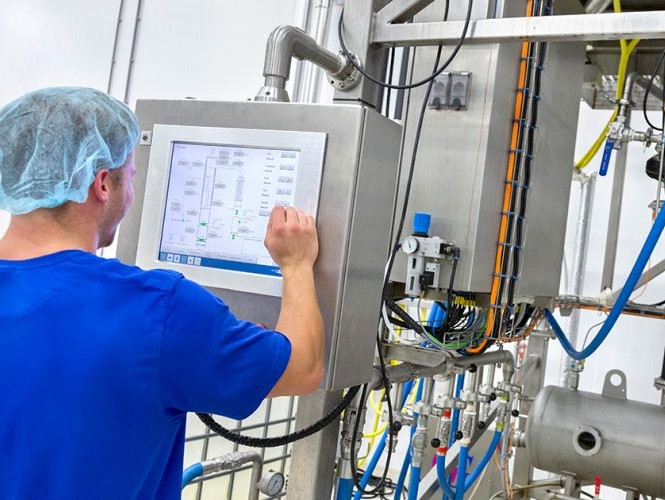
Vakblad Voedingsindustrie participates in the Future of Food campaign launched by Mediaplanet on 19 December 2019. Learn more about various trends and developments in the field of food. Subjects such as mechanisation, sustainability and breeding are discussed by thought leaders such as Hans van den Heuvel (Director - LTO), Prof.ir.dr. Luisa Trindade (Group Leader Biobased Economy - Wageningen University), Marcel van Haren (Manager AgriFood FME - Plantum), Thijs Dorssers (Manager - Holland Robotics), Gerard Heerink (Director - Fedecom) and Jos de Boer (Director - Food Tech Brainport). The campaign was distributed as an insert in the New Scientist. All articles can be found online on the website www.planet-cause.nl. Below you will find an overview of a number of articles.
by Niels Louwers (Plantum Director)
The smart combination of different sciences to contribute to food security, sustainability and other social goals worldwide: the sector of seeds and young plants is a dream for everyone who wants a challenging and at the same time meaningful life.
The development of new plant varieties that are more resistant to diseases and pests, that are robust in times of unpredictable and changing weather patterns, and that produce high-quality food and ornamental plants, is an area in which the Netherlands is one of the absolute world leaders.

by Marcel van Haren (Manager AgriFood FME) - image TU Delft
As a result of all kinds of social developments, the food chain is facing enormous changes all over the world. Due to the growth and prosperity of the world's population, the demand for food is expected to increase by no less than 60% in 2050. Climate change and urbanisation are increasing the pressure to produce food in a sustainable and efficient way, close to consumers and without damaging ecosystems.
In addition, countries increasingly want to become self-sufficient. Food production is becoming more fragmented, smaller in scale and concentrates on an ever smaller area. At the same time, chain partners must increasingly take into account the wishes and demands of consumers and governments. They are asking for more and more transparency about the origin of products and the way in which the production process is organised. Moreover, there is a growing awareness that food plays a crucial role in disease prevention. Prevention is better than curing.

by Jos de Boer (Director Food Tech Brainport)
We want to feed more people and be more economical with our planet. There are plenty of opportunities for this in the food processing industry, says Jos de Boer, director of Food Tech Brainport. "For example, mild preservation and smart use of residual flows can reduce waste and provide higher nutritional values.
We live in a time when consumers no longer accept that a third of all food production is thrown away. As a result, food has an unnecessarily high CO2 footprint and takes up unnecessarily much valuable space and raw materials, says De Boer. At the same time, people are looking for healthier food of which they know the origin and preferably which is produced as locally as possible. "Chains will have to become increasingly transparent. People don't want to have to question anything, and for instance don't accept it when there's an unnecessary amount of spraying".
Source: ©MediaPlanet